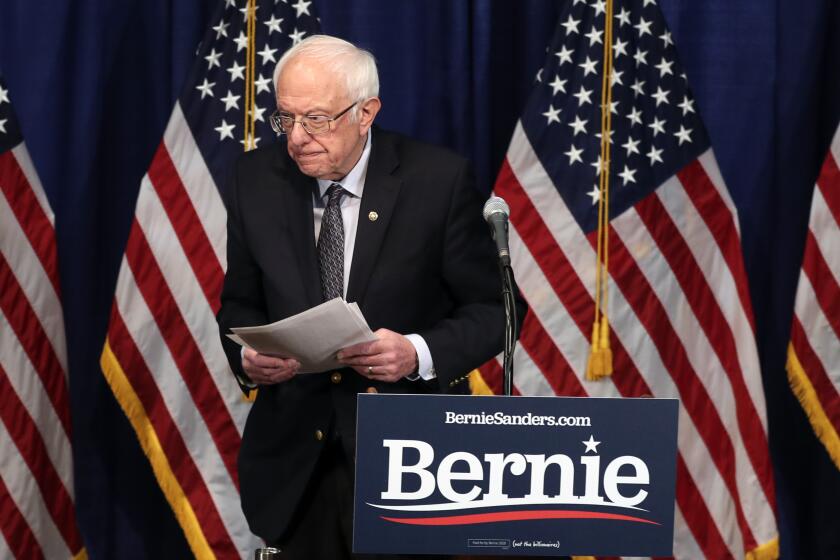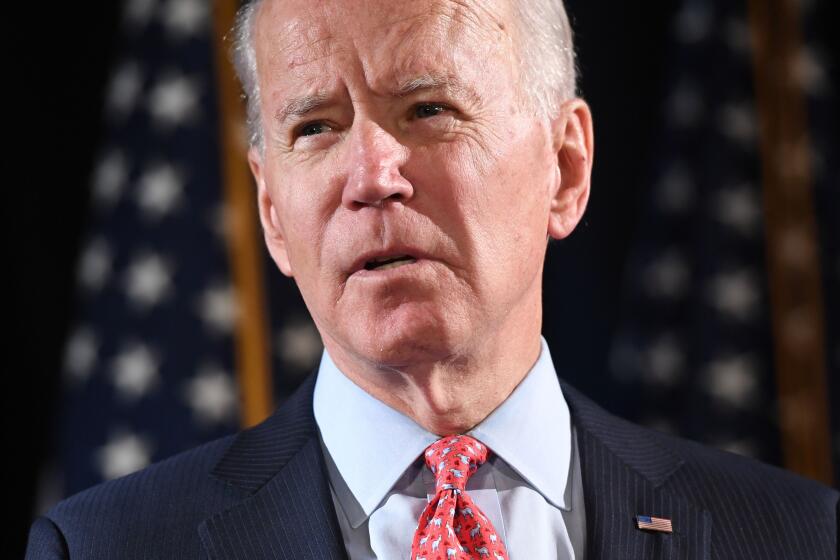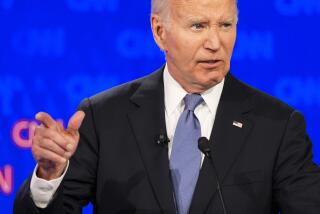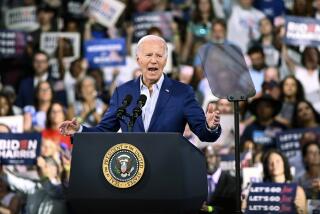Biden and Sanders face off in a debate unlike any this election cycle. Here’s what you need to know
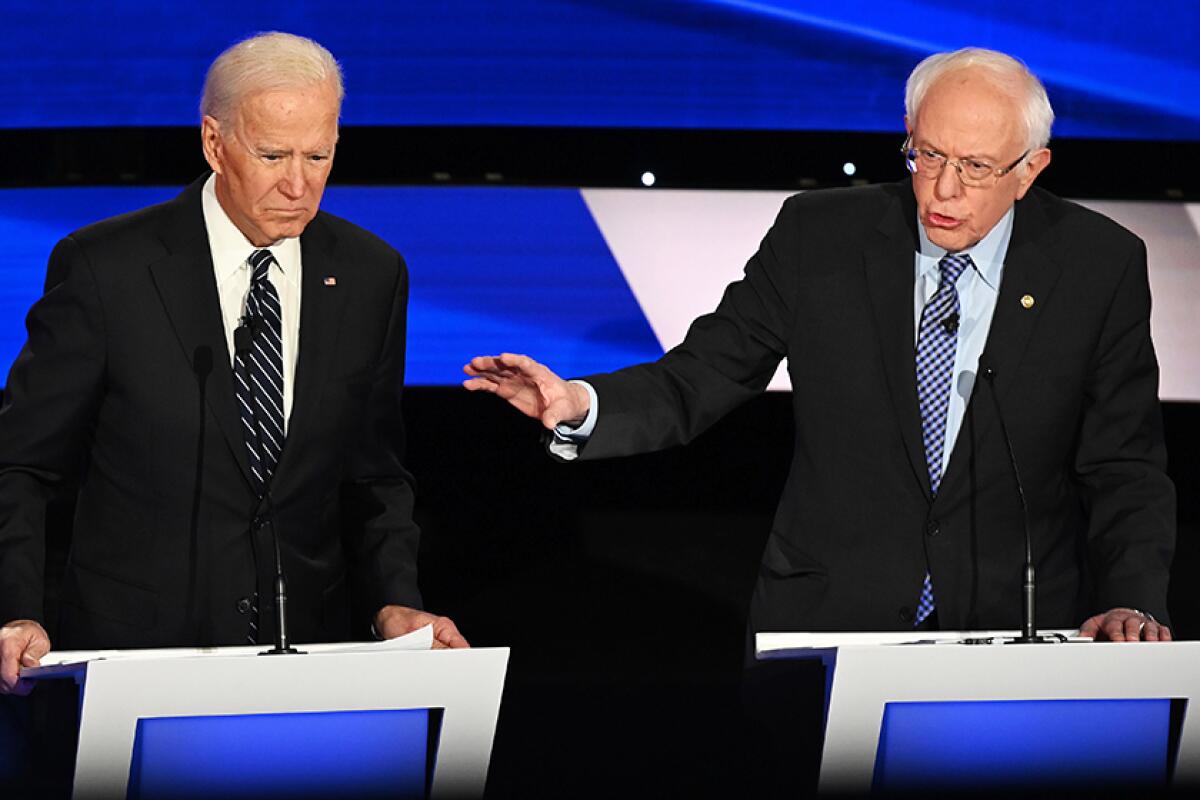
After a grueling few months — filled with laughter, tears and questions about the cost of universal healthcare — we’ve finally narrowed things down to the final two.
Two Democratic debates left on the calendar, that is.
Also just two candidates remain onstage, former Vice President Joe Biden and Vermont Sen. Bernie Sanders, who meet Sunday night in a Washington TV studio after concerns about the spreading coronavirus led to cancellation of a town-hall style session in Phoenix.
This is the first Democratic debate since Joe-mentum swept the country following Biden’s commanding South Carolina win on Feb. 29. Since then he’s romped to victory in more than a dozen contests nationwide, effectively wrapping up the nomination barring a miracle Sanders comeback.
It’s also the first debate since the coronavirus contagion has taken up much of the world’s attention. No one is immune, not even presidential contestants and would-be moderators.
Here’s what you need to know before the debate:
Coronavirus changes
The two-hour program had been scheduled to take place before a live audience at the Arizona Federal Theatre in downtown Phoenix, days before Arizona, Florida, Illinois and Ohio hold their primaries. But once the spread of the new coronavirus became more acute, the Democratic National Committee announced there would be no audience for the Biden-Sanders matchup.
Then on Thursday, the DNC changed the location in order to minimize cross-country travel. Now it will be held in CNN’s studios in the nation’s capital; there will be no live audience.
But that’s not all. Univision anchor Jorge Ramos, one of the moderators, stepped aside after disclosing he’d been in close proximity to someone who had been in contact with a person who tested positive for the coronavirus. Ramos and the other person are symptom-free, the DNC said, but out of an abundance of caution, Univision anchor Ilia Calderón will take Ramos’ place.
What time does the debate start?
The debate will air from 5 to 7 p.m. Pacific time. CNN and Univision are hosting. CNN political correspondent Dana Bash and anchor Jake Tapper will also help moderate the debate.
How do I watch the debate?
If you’re watching on TV, it will air on CNN, CNN en Español, CNN International and Univision. For cord-cutters it will stream on CNN.com, CNN’s mobile apps, the CNNgo apps for streaming devices like AppleTV and Roku, and Univision’s digital properties.
Biden and Sanders face off Sunday at the March Democratic debate, where they’ll have more time to talk about policy. Here’s where they stand on five issues.
What’s it going to be like with all those other candidates gone?
It means instead of sharing the stage, and getting a break now and then, it’ll be just Biden and Sanders answering questions.
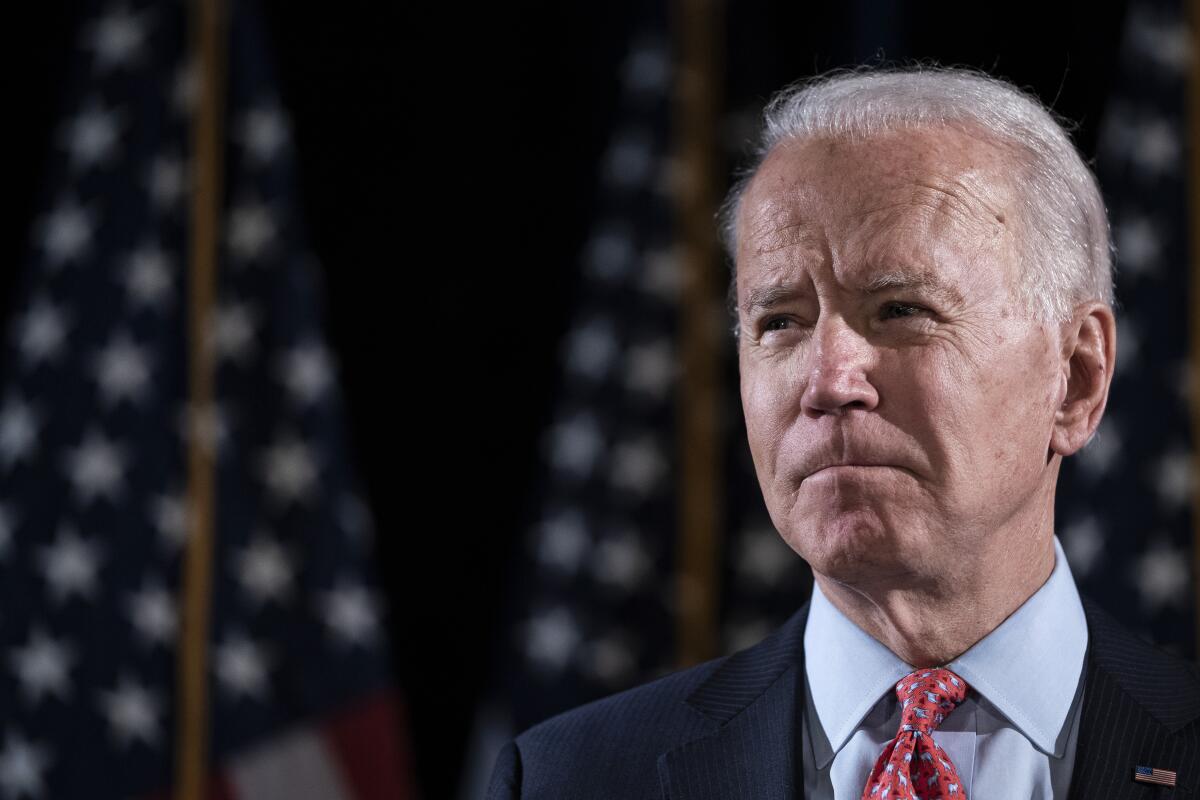
Will Biden hit or miss?
We’ll see.
The smaller stage may pose a particular challenge for Biden, whose hit or miss performances over the last few months raised questions about his strength as a candidate.
At times the former vice president skillfully went after his opponents, hammering billionaire Tom Steyer on his investments in the private prison system and Sanders on his voting record on guns.
In other moments, however, he was the target, over his record on busing, school desegregation, criminal justice, and financial regulations. And then there have been the instances where he rambled, misspoke, or failed to get his point across.
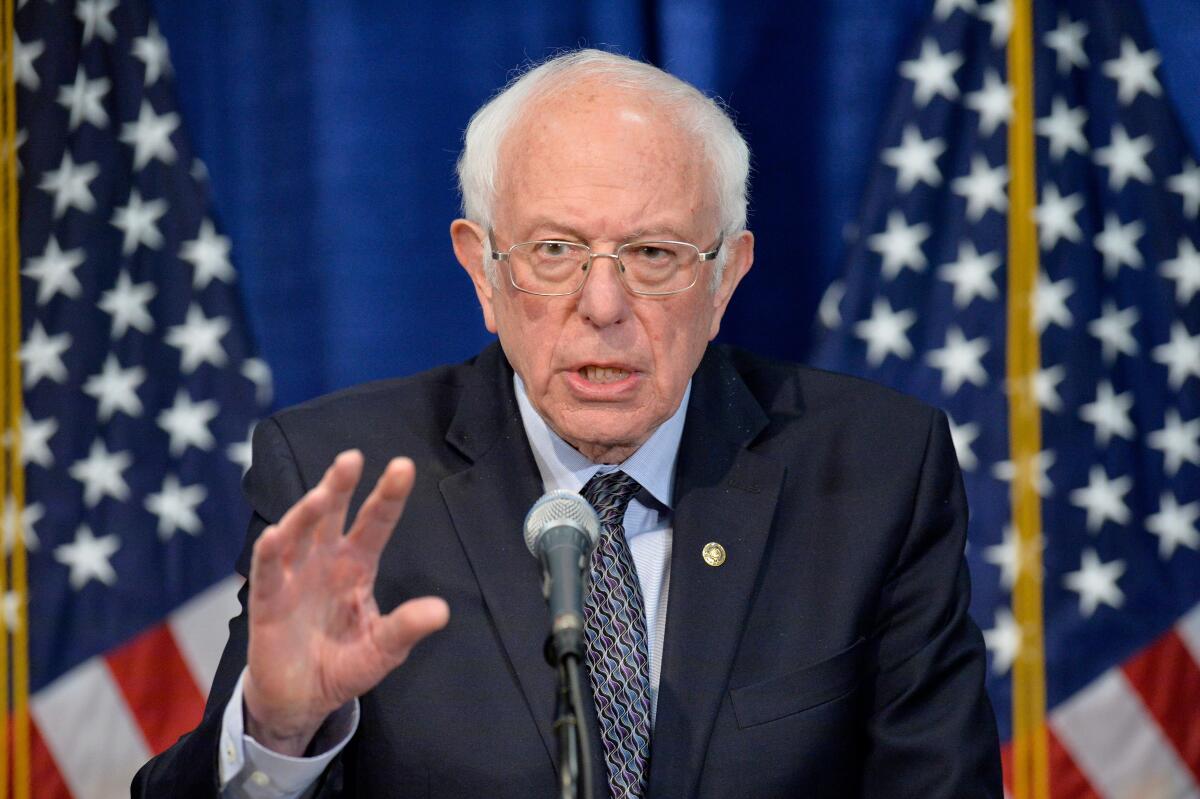
What about Sanders?
Sanders has acknowledged that his campaign is “losing the debate over electability” but said the face-to-face would be a chance for voters to see for themselves whether he or Biden could best take on President Trump.
Joe Biden turns to unifying Democrats for the campaign against President Trump. But Bernie Sanders says he’s not yet ready to quit.
“Donald Trump must be defeated, and I will do everything in my power to make that happen,” Sanders said Wednesday at a news conference from Burlington, Vt. “On Sunday night, in the first one-on-one debate of this campaign, the American people will have the opportunity to see which candidate is best positioned to accomplish that goal.”
The senator acknowledged that the path he had envisioned to the nomination appears to be closing. And he offered a list of policy challenges he plans to make Sunday night — a Sanders-approved study guide of sorts for the former vice president for the debate and for winning over the democratic socialists’ supporters.
Coronavirus onstage
It’s the topic on everyone’s mind and somebody will almost certainly bring it up, either Biden, Sanders or one of the moderators.
Expect Biden to make the case that he is the leader Americans need in a time of crisis.
Biden’s speech on coronavirus dovetails with Democrats’ strategy of portraying Trump as a feckless and ineffective leader.
“Public fears are being compounded by pervasive lack of trust in this president fueled by adversarial relationships with the truth,” he said Thursday during a discussion of the coronavirus outbreak.
Expect Sanders to also excoriate the Trump administration’s response to the pandemic, but also to link the public health crisis to his signature issue: the need for universal healthcare.
“If there ever was a time in the modern history of the country when we are all in this together, this is that moment,” Sanders said.
What role will the moderators play?
Ideally, moderator questions not only draw distinctions between the candidates on policy, but force them to address the concerns general election voters might have.
One of those concerns may well be about the candidates’ age and health; Sander is 78, and Biden is 77.
Sanders, who had a heart attack in October, said last year that he would release his full medical records at an appropriate time. He released letters from three doctors saying he was in good health in December, but, in a reversal, has said he doesn’t plan to release more information.
Biden, who has challenged reporters to push-up contests to demonstrate his fitness, released a three-page summary of his medical records in December. Doctors said he was “healthy, vigorous” and fit to serve as president.
Moderators may press both candidates on whether they plan to release full, detailed medical records.
The candidates may also be asked about what they’re looking for in a running mate. After a historically diverse Democratic field narrowed down to two older white men, the candidates may look for an opportunity to show how they would balance out the ticket.
And after Sunday?
There is one final Democratic primary debate planned, and then that’s it. At least until the general election.
Times staff writer Mark Z. Barabak contributed to this story.
More to Read
Get the L.A. Times Politics newsletter
Deeply reported insights into legislation, politics and policy from Sacramento, Washington and beyond. In your inbox three times per week.
You may occasionally receive promotional content from the Los Angeles Times.

